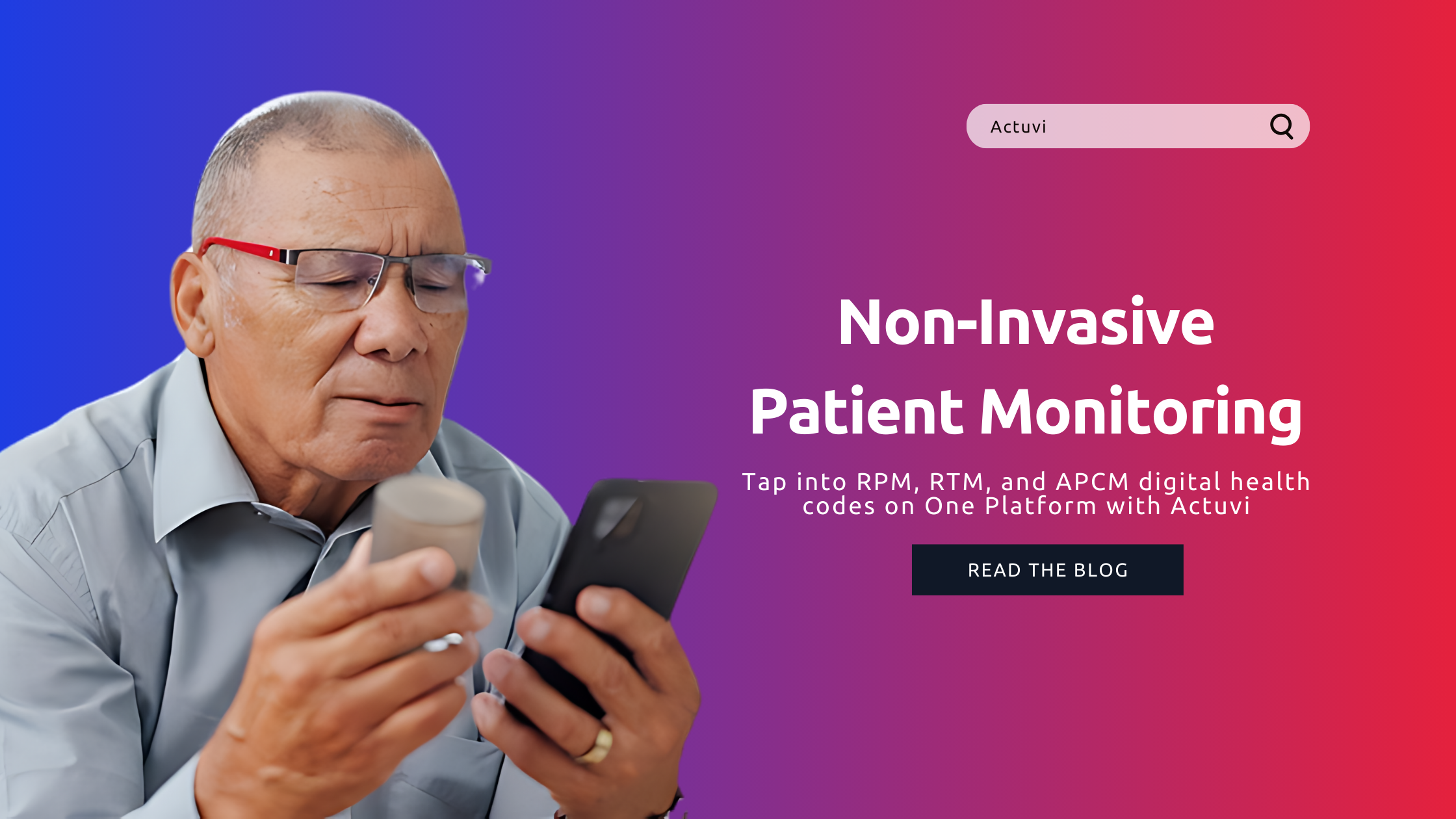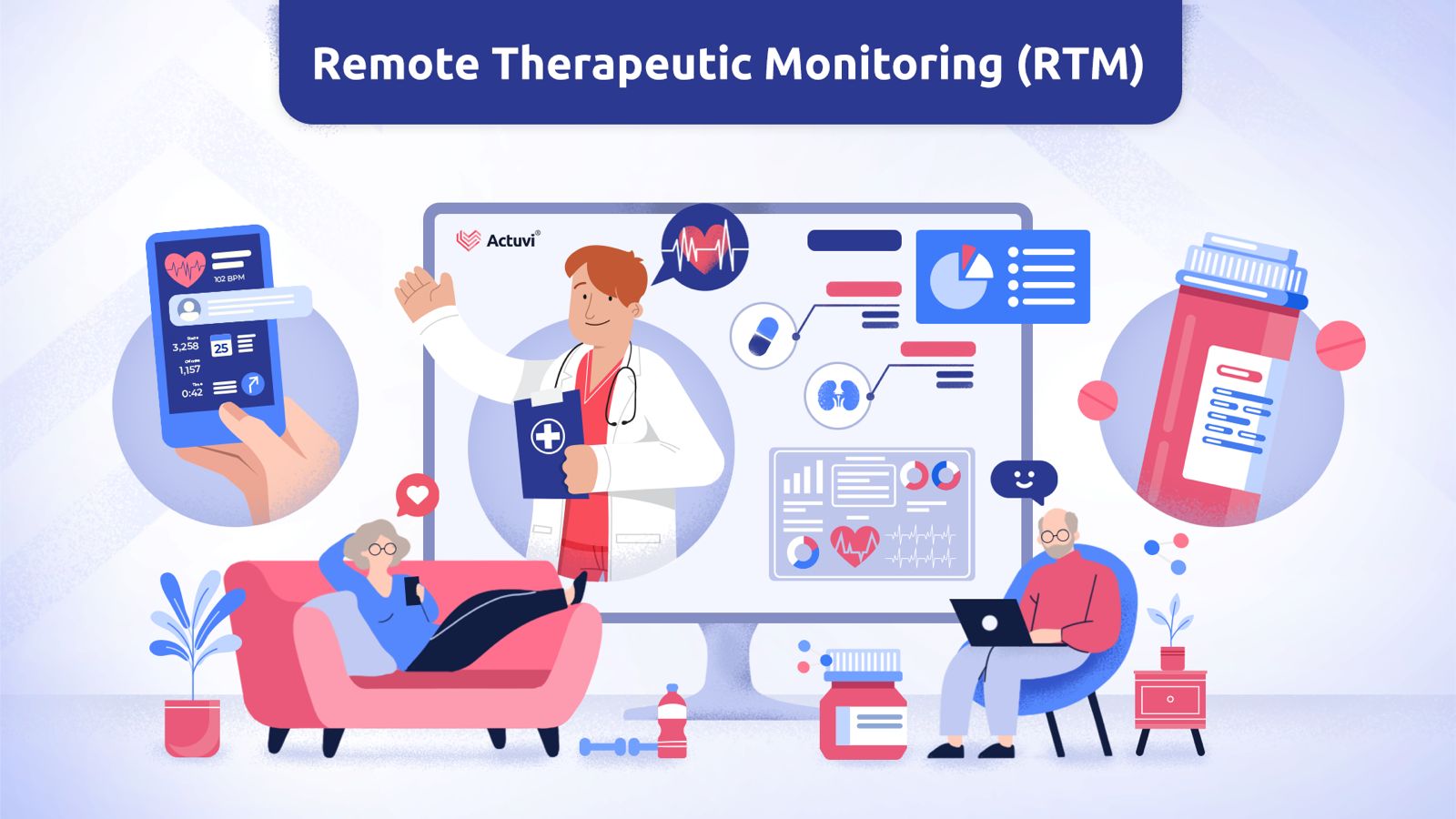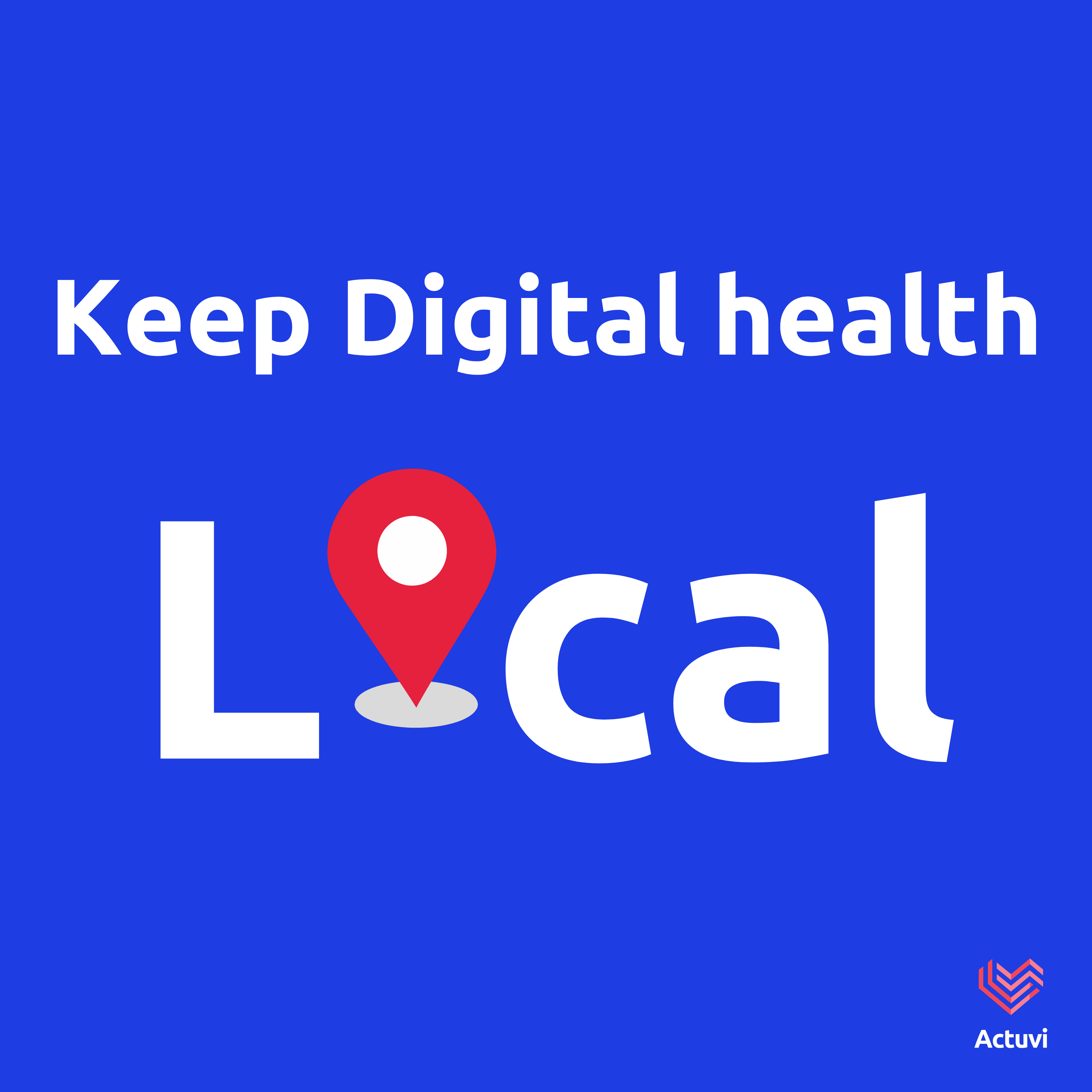In chronic disease management, timely detection of even subtle changes in a patient’s condition is crucial for preventing complications and ensuring optimal health outcomes. Traditional methods often rely on scheduled appointments and spot checks, which can miss critical developments occurring between visits. Here, continuous remote monitoring (RTM) emerges as a valuable tool for healthcare professionals, offering benefits beyond just early detection.
Continuous Data Collection: Capturing the Full Picture
RTM systems like Actuvi address this gap by enabling the continuous collection of vital health data from patients in their home environments. This data stream can include:
- Physiological Parameters: Blood pressure, heart rate, oxygen saturation, weight, and more (depending on the specific needs of the patient).
- Patient-Reported Experience Measurements (PREMs): This incorporates data on how patients experience their illness and the impact it has on their daily lives. Examples include pain levels, fatigue, shortness of breath, mood, and sleep quality.
- Symptom Tracking: Patients can report any concerning symptoms they experience directly through the platform.
Transforming Data into Actionable Insights
The true power of RTM lies in its ability to translate raw data into actionable information. Actuvi’s analytics engine continuously monitors trends and identifies potential red flags, such as:
- Significant deviations from a patient’s established thresholds.
- Emerging patterns in physiological parameters, PREMs, or symptom reports that suggest a potential decline in health.
- The emergence of concerning symptoms reported by the patient.
Early Intervention: The Key to Preventing Complications and Stable Reimbursements
With timely alerts from the RTM system, healthcare professionals are empowered to intervene early. This might involve:
- Scheduling a virtual or in-person visit to assess the patient.
- Proactively adjusting medication regimens based on the collected data.
- Educating the patient on necessary lifestyle modifications to improve their health.
By taking action early, these interventions can potentially prevent complications, hospital readmissions, and even worse outcomes. This translates not only to better patient care but also to stable reimbursements for doctors. Many healthcare reimbursement models incentivize chronic disease management and preventive care. By demonstrating continuous patient engagement and proactive interventions through data collected with RTM, doctors can ensure they meet the requirements for these models and receive stable reimbursements.
The Ripple Effect of Proactive Care
The benefits of early detection with RTM extend beyond individual patients and doctors. Proactive intervention can lead to:
- Reduced Healthcare Costs: Early detection and prevention of complications can significantly reduce the financial burden associated with managing chronic conditions. This translates to fewer hospital admissions, emergency room visits, and costly interventions.
- Improved Patient Quality of Life: By preventing complications, patients experience a better quality of life with fewer disruptions to their daily routines.
- Empowered Patients: Continuous monitoring empowers patients to take a more active role in their health management and feel more secure knowing their well-being is continuously monitored.
The Future of Chronic Disease Management
Continuous remote monitoring offers a promising approach to chronic disease management. By enabling early detection of deterioration through a combination of physiological data, patient-reported experiences, and symptom tracking, RTM empowers healthcare professionals to deliver proactive care. This ultimately leads to better patient outcomes, a more efficient healthcare system, a significant reduction in preventable hospital visits, and stable reimbursements for doctors who embrace this technology.







